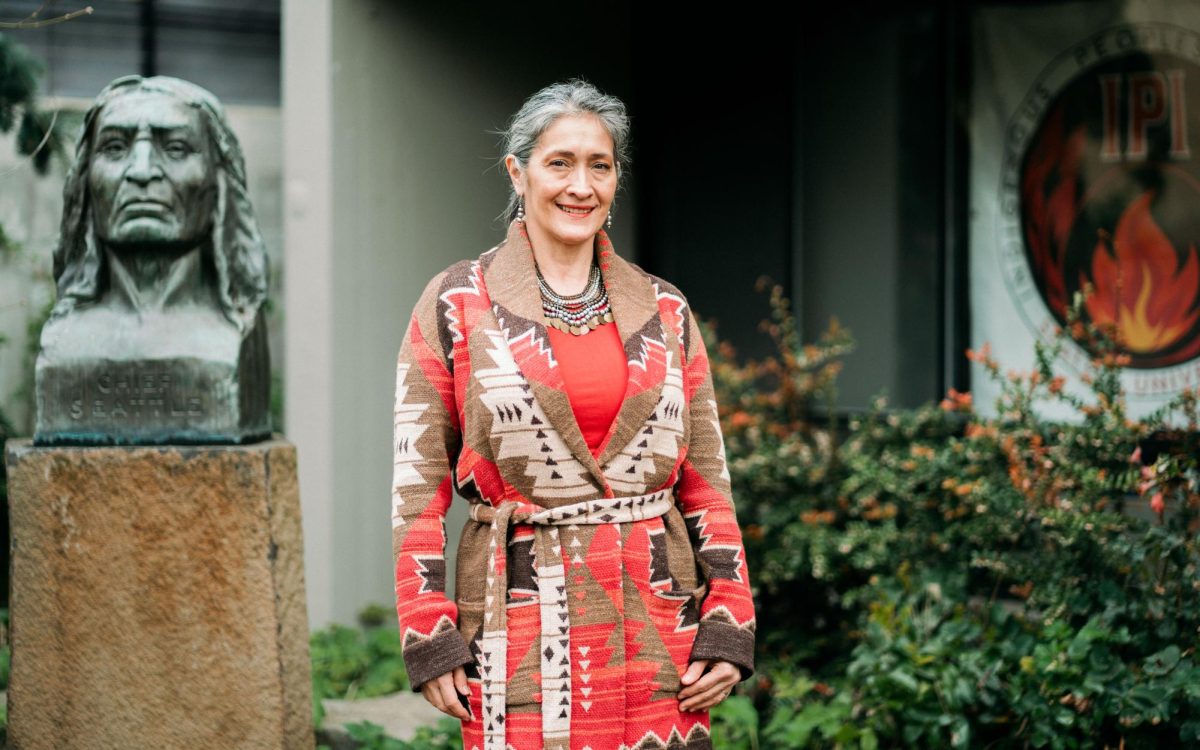Washington State holds the collective future of student journalism in its legislative hand this week. Since the escalation of the media frenzy leading up to and surpassing the 2016 presidential election, the role of the press has rarely been under such intense scrutiny. In some cases the critique is well deserved– calling into question the validity of poorly sourced and outright false reporting. But, with every accusation of “fake news” and “alternative facts,” people have begun to question the value of journalism and its place in our society.
On Jan. 17, SB-5064 was introduced to limit that speculation from having an adverse effect on student journalists developing their skills. Nick-named the “New Voices Bill,” SB-5064 is currently in the State’s senate committee. It was introduced by Republican Joe Fain in January of 2016. If passed, it will extend the rights of student journalists in all educational institutions, and limit the amount of editorial oversight schools and districts wield.
Specifically, the New Voices Bill will protect practicing journalists and reporters regardless of the level of involvement by the school’s administration and resources—even at private high schools and universities. Many support extending freedom of press rights to all citizens, including minors and their student-run papers. Opponents say even private publishers have editorial oversight, and school districts should be able to act as a control point for published material.
“Freedom of the Press is one of the most important fundamentals of our society, that is why it is integrated into the First Amendment,” said Allen Mikulski, a senior history major. “It seems that the question of liability is the only concern of these school districts, which [is] in itself alarming. The press has a responsibility to the public of which they are a part of to provide us with the knowledge to make informed decisions about our elected officials and the policies they are pressing on our behalf.”
Despite the obvious support of First Amendment rights, there are concerns that a lack of administrative oversight is too much responsibility too soon, and puts the districts in the unique disadvantage of not being able to control content. Publishers have editorial voice and some aspects of control over what gets printed. For schools, or the state government, there is the precarious position of piloting taxpayer funds and ensuring a fair and even distribution of perspectives.
“I think it is more and more important that youthful journalistic voices are heard and protected,” said sophomore international business major Axel Catellier. “Suppressing free speech at the student level can only have harmful effects on students who are excited about pursuing a journalistic career after graduating. It sends a distinct message to these students when their university has an active role in heavily overseeing what their student journalists are writing, as it can only be attributed to protecting its own interests.”
If there is one thing the recent election has brought to the surface of our social conversation, it’s the loss of trust between the public and the press. One of the best ways to decrease this fissure is to foster better communities of learning for future reporters and journalists, and that starts in classrooms.
“I think that it’s important for students to get a little bit more free speech than some big news corporation” said RJ Ollie, a junior psychology major. “School is one of the last places you really get to experiment before being forced into societal molds and ideals. Basically, I think schools should let their students write what they want, and not suppress their voices.”
The bill also states that certain protections exist for advisors and will remove expectations of liability on the part of the school districts. This is not nearly the free-pass it could be taken for, as the law also stipulates the continued enforcement of laws which protect individuals against libel, content deemed personally invasive, and speech that is directed to disrupt school operations.
“I personally believe students should have a voice, and students freedom should be extended,” said senior strategic communications major Jori Acacio. “I believe that school is a place for students to learn, grow, and explore and by giving them the freedom to do this, it helps them learn from their mistakes and how to improve. I believe that limiting students of this freedom is problematic because it doesn’t allow students to take risks which I think is a very valuable skill to have in the real world after graduation.”
In the end Seattle U students, along with democrat and Republican lawmakers in the state believe that increasing freedom of the press is essential to enhancing the quality of our news, and increasing the quality and symmetry of information which is vital to our functioning democracy.
Les may be reached at
[email protected]












